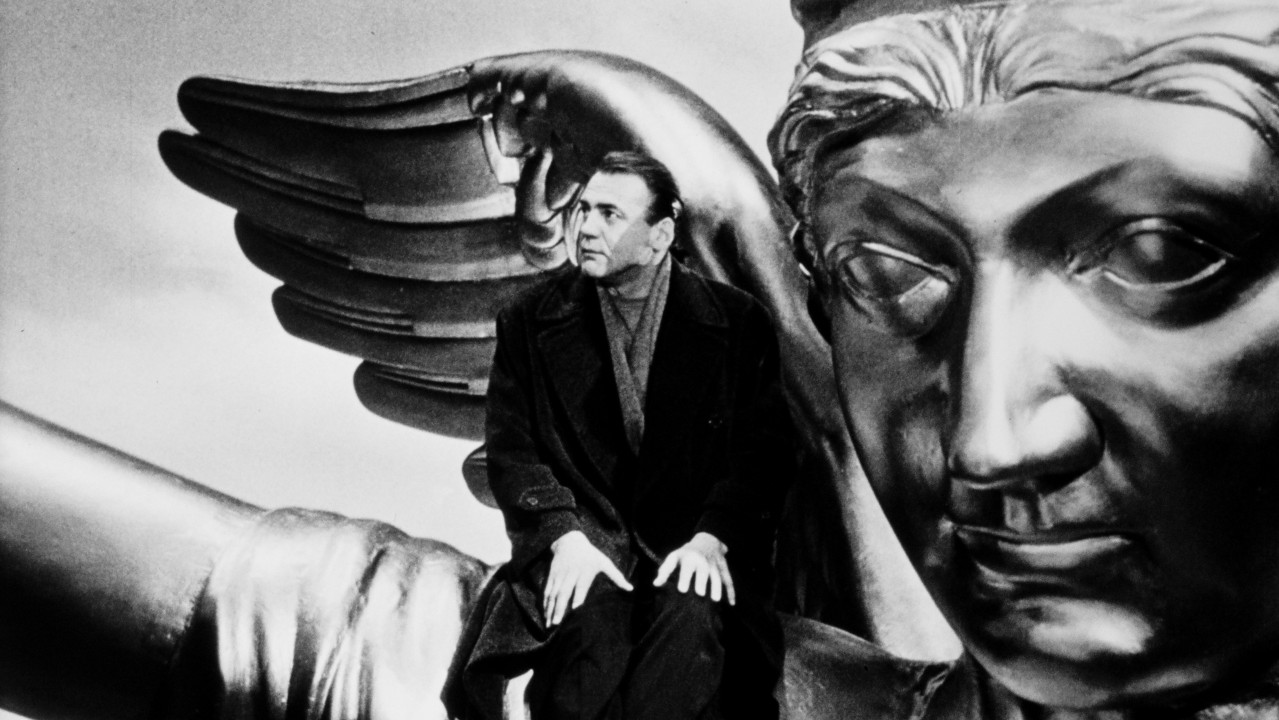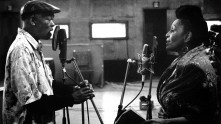
2018 Norton Lectures in Cinema
Wim Wenders
One of the three central figures of the New German Cinema alongside Rainer Werner Fassbinder and Werner Herzog, internationally celebrated director Wim Wenders (b. 1945) is also the movement’s romantic introvert—an artistic personality apart from Fassbinder’s feverishly industrious expressivity and Herzog’s philosophically tinged global ambition. Although Wenders’ artistic quest has taken him from his native West Germany to Paris, New York, Havana, Brazil, Indonesia, the American southwest, and Hollywood, his filmography has long evinced a process of private catharsis that maps a set of idiosyncratic curiosities and anxieties onto the wider world. Raised into a postwar Germany still reeling from the pall of Nazism and the partition of its eastern and western halves, Wenders’ sought an identity elsewhere—if not in the America that so fascinated and frustrated him, then at least in the constructed space of the cinema itself.
It was at one such space that a young Wenders, fresh off an aborted stint in medical school, found his calling. The Cinémathèque Française, home to programmer extraordinaire Henri Langlois and breeding ground for the innovators of the French New Wave, provided a third home for Wenders during a spell in Paris while apprenticing for a noted printmaker. It was there that he found influence in such Hollywood rebels as Samuel Fuller and Nicholas Ray and fringe New Wavers like Jean Eustache, all of whom Wenders would later cast in his commercial breakthrough, The American Friend, a film dedicated to Langlois. Formal technical training came later in Munich, but the Cinémathèque provided the education most critical to his earliest works, which blend an innately German sorrow with signifiers of globalized pop culture to achieve a unique push-pull between malaise and longing.
This quality is at the core of Wenders’ “Road Trilogy,” a series of films that cemented his reputation on the international scene. In each of these formally assured and dramatically freeform road movies, Rüdiger Vogler plays a melancholy wanderer who could be said to stand in for Wenders himself, as his characters’ varying vocations—Polaroid-snapping journalist in Alice in the Cities, struggling writer in Wrong Move, and exacting film projectionist in Kings of the Road—reflect different shades of the director’s life experience. Shot by Dutch cinematographer Robby Müller in a boldly pictorial style as indebted to Depression-era American photojournalists like Robert Frank and Walker Evans as it is to painters like Edward Hopper and Caspar David Friedrich, the films earned critical attention for their sensitive portrayals of loneliness and rootlessness as well as their subtextual emphasis on Germany’s indeterminate historical position.
Wenders’ ascent in status through the 1970s yielded bigger budgets and major festival attention, but his ultimate trajectory as a filmmaker has continually skirted any stable studio involvement. Some of his greatest successes, such as the Palme d’Or-winning Paris, Texas or the metaphysical love story Wings of Desire,bucked traditional production methods and took on forms that resisted conventional dramatic catharsis at every step, while larger, more commercially oriented outliers like Until the End of the World were coolly received. Furthermore, like his colleague Herzog, Wenders pivoted early to nonfiction work and has maintained equal footing in documentary and narrative ever since—with the common denominator being that his subject matter always reflects his own idiosyncratic obsessions. Buena Vista Social Club and Ode to Cologne: A Rock ‘N’ Roll Film, about Golden Age Cuban musicians and the German rock trio BAP, respectively, flesh out a passion for music already evident in the director’s indelible soundtracks, while films like Pina and The Salt of the Earth explore the working lives of artists (choreographer Pina Bausch in the former, photographer Sebastião Salgado in the latter) for whom Wenders harbors great respect and professional curiosity.
Half a century into his career, Wenders remains on his own winding road, one as likely to detour to Japan for a feature-length tribute to a bygone master (such as the Ozu homage Tokyo-Ga) as it is to idle in Los Angeles for eccentric star-studded fare like Every Thing Will Be Fine. The director’s trail of disciples includes such figures as Jim Jarmusch and Aki Kaurismaki, but his signature—that wistful disposition that’s rooted in a hyper-awareness of history’s echoes in the present and a concern for the material degradation of art—continues to be inimitable. It’s a trademark most easily attributed to his groundbreaking films of the seventies, but it’s really one that threads through his entire eclectic body of work and, given Wenders’ current standing as one of the actively working filmmakers left from the forerunners of the New German Cinema, one that’s worth reacquainting with. – Carson Lund
The Harvard Film Archive and the Mahindra Humanities Center welcome Wim Wenders who follows Frederick Wiseman and Agnès Varda as one of this year’s Charles Eliot Norton Professors in Poetry. In addition to the retrospective and appearances at the HFA, he will deliver two of this year’s Norton Lectures on April 2 and April 9 at Sanders Theatre























